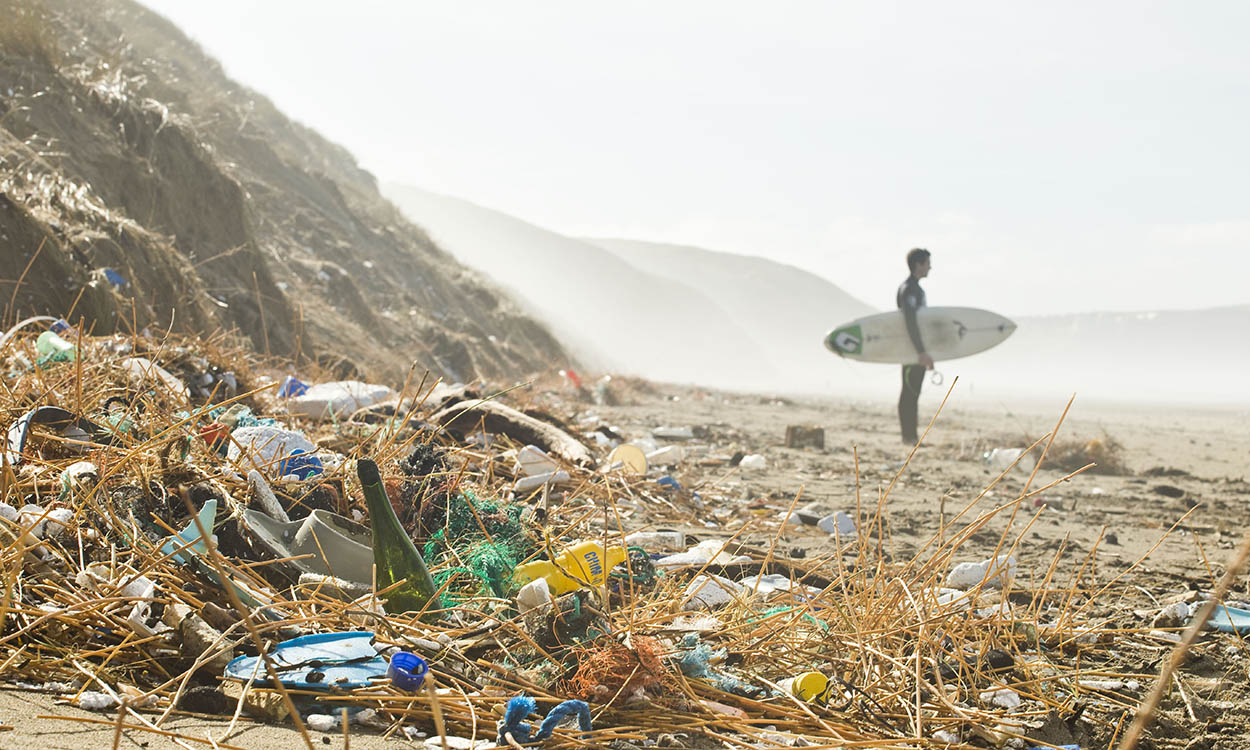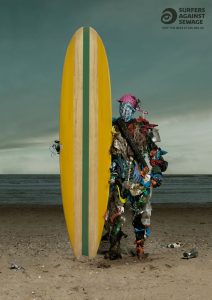 Plastic, the once revolutionary material marketed as ‘the material of a thousand uses’ with endless possibilities is now creating catastrophic chaos in our oceans, destroying marine life and ruining our endless coastlines.
Plastic, the once revolutionary material marketed as ‘the material of a thousand uses’ with endless possibilities is now creating catastrophic chaos in our oceans, destroying marine life and ruining our endless coastlines.
12.7 million tonnes of plastic waste has been discarded into our oceans, from bags to bottles and of course the infamous straws and cotton buds, which have led to viral images plaguing the nation.
The impact of these images, or what has been referred to as the ‘the Blue Planet effect’ – a drastic call to arms against plastic catalysed by the series Blue Planet II – has woken the nation and the government to the horrors of plastic pollution, with Cornwall taking the lead on trying to be the first ‘plastic free county’.
Cornwall has been making headlines with their dedication to attaining a plastic free county. This has been advocated by various charities throughout the south west, with many organisations making noise that has resonated throughout the UK and beyond.
One of UK’s most influential marine conservation charities, Surfers Against Sewage, a single-issue pressure group founded in the 1990s, has been the driving force behind the plastic free movement, with their voices being at the centre of the campaign.
Chief Executive, Hugo Tagholm, said: “We work on all sorts of issues, but plastic pollution is our priority. It is a huge crisis in our oceans, in our environment, in all parts of our planet.”
“So that’s why we’re focused on it, from the beachfront with our beach front volunteers right up to the work we do in Westminster and with governments in the UK and around the world.”
Tagholm and his team have created a framework called the Plastic Free Communities initiative, which was formed to encourage towns and villages to reduce their single use plastic. There are numerous communities involved, with some towns reaching plastic free status.
“Penzance was the first town to receive its accreditation. Which means it has really put the engine in place to tackle plastic pollution.”
“We’ve got lots of other communities in Cornwall: plastic free St Agnes, plastic free Falmouth. All sorts of communities either with the status or working towards the status with us and the council is very committed to this programme.”
The community leader for Penzance’s plastic free movement and the Southwest’s regional representative for SAS, Rachel Yates, decided to join the Plastic Free Community scheme after noticing the mess caused by the storms in February 2014. Rachel believes that Cornwall is the best location for the plastic free movement because of its marine life.
“We are an obvious place to take action because the evidence and the impact of single use plastics on the marine environment is so clear. We can also send a really strong message to the rest of the UK,” she said.
“We are custodians and we have a duty to protect our environment but we also have an opportunity to spread that message further and to act as an example.”
Tagholm suggests that although Cornwall has some of the most beautiful beaches in the UK, the tidelines are cluttered with rubbish every day.
“Cornwall needs to do this because these are its natural assets. These are the assets which sell the county and so it’s in its interest to be leaders as it were, not just nationally, but internationally on taking a stand on plastic pollution.”
There has been a direct effect on Cornwall including the impact on wildlife, from entangled birds, seals and turtles, as well as the ‘detrimental impact’ on tourism.
Penzance have managed to encourage many small businesses to join the plastic free movement by removing or replacing at least three single use items so they could achieve their accreditation, but there is still the issue of trying to convince the local supermarkets to join forces.
With over 800,000 tonnes of plastic generated by supermarkets, it is no surprise that people want to see a change. Tesco have vowed to make all packaging fully recyclable by 2025, while Iceland have welcomed deposit return schemes. All supermarkets now charge for the use of a plastic bag which has seen a reduced circulation by over 9 billion.
Tagholm says: “Using these more sustainable alternatives is a market advantage rather than a market disadvantage in what they’re doing.”
From the beach cleans to the talks to the relentless campaigning it seems the small county of Cornwall are having a big impact on the rest of the world and are hoping to be crowned the first plastic free county in the country.
Tagholm states more needs to be done globally to cease the flow of plastic into the ocean and that “we can’t just pick our way out of the problem”, although he adds that saying no to single use plastic will reduce your plastic footprint and therefore the environment and that is a “victory for our environment”.


